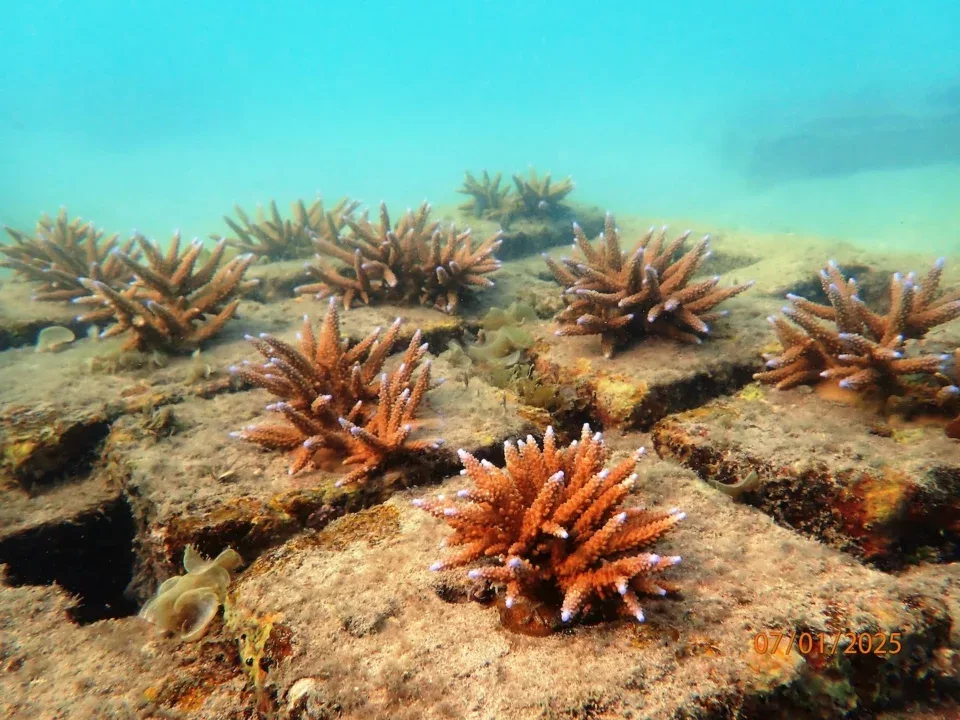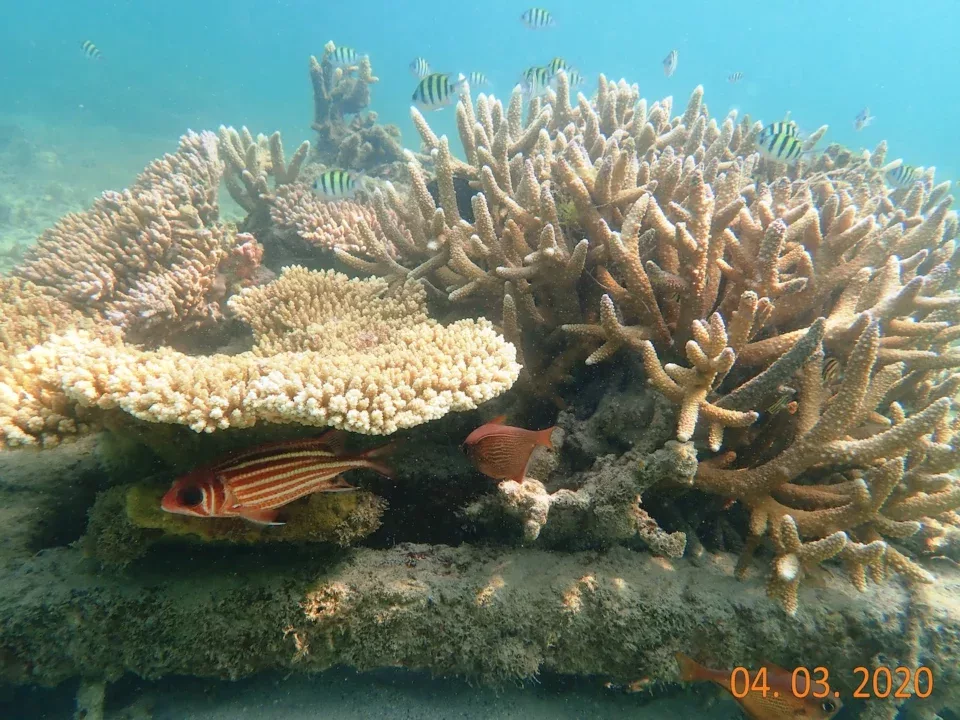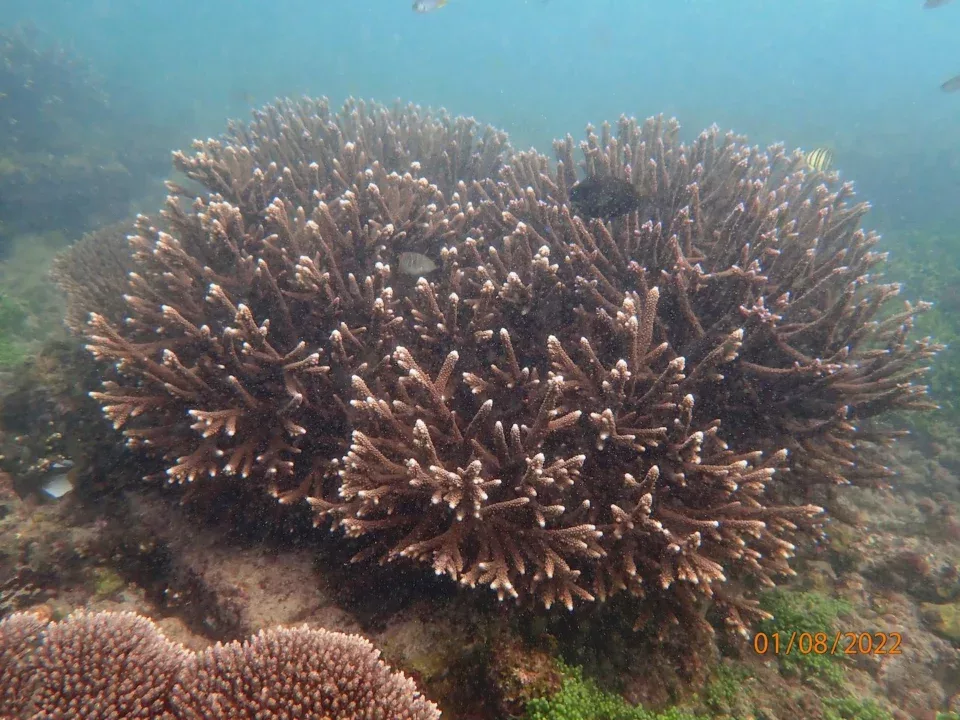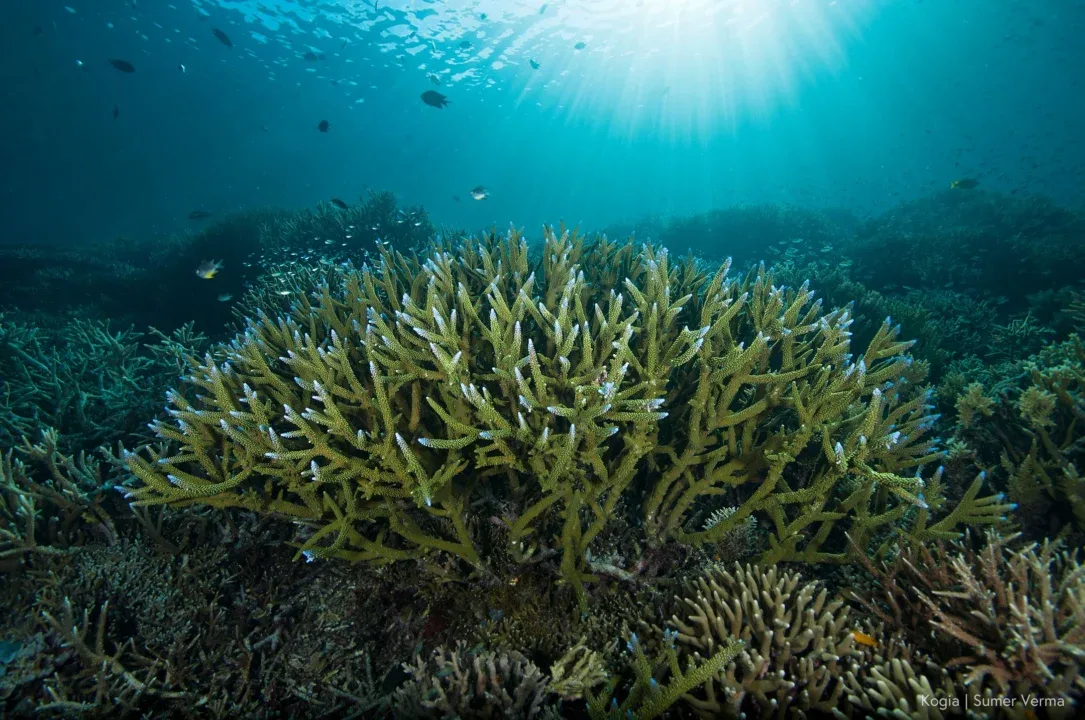A comprehensive two-decade effort to restore degraded coral reefs through direct transplantation on artificial substrates along the southeast coast of India has demonstrated encouraging ecological outcomes. Carried out between 2002 and 2024 in the Gulf of Mannar (GoM), the large-scale initiative highlights the potential of locally adapted restoration strategies in enhancing coral cover, biodiversity, and ecosystem resilience.
These outcomes are detailed in a newly published article, “Long-term coral restoration efforts to mitigate anthropogenic and climatic impacts in Gulf of Mannar, India: Lessons learnt, success, challenges and prospects,“ now available in the Journal of Environmental Management. The study is authored by the Suganthi Devadason Marine Research Institute (SDMRI), a member of the International Coral Reef Initiative (ICRI).

The restoration programme involved the transplantation of over 51,000 coral fragments, each measuring 8–12 cm, representing 20 native coral species with diverse growth forms. Restoration methods were continuously refined over the years, improving the design of artificial substrates, transplant techniques, and long-term monitoring protocols.
Survival rates of transplanted corals ranged from 55.6% to 79.5%, varying by location and species. The branching coral genus Acropora showed the highest success, with survival rates and growth reaching up to 16.7 cm per year. Notably, restored corals have exhibited gametogenic activity similar to wild corals, indicating functional maturity and reproductive viability.
Ecological monitoring revealed marked improvements in reef health at restored sites, including increased live coral cover, higher coral fragment density, and greater reef fish abundance compared to unrestored areas. These indicators point to the positive ecological impacts of the long-term restoration initiative.

Despite some ongoing challenges linked to climate change and local anthropogenic pressures, the success of the project underscores the value of coral transplantation using artificial substrates when guided by adaptive and evidence-based protocols. The field-tested approach used in the Gulf of Mannar provides a scalable and replicable model for coral reef restoration in other parts of India and across similarly impacted reef systems worldwide.
Furthermore, the Government of Tamil Nadu has launched the Tamil Nadu Coastal Restoration Mission and is currently implementing the Tamil Nadu: Sustainability Harnessing Ocean Resources and Blue Economy (TN-SHORE) Project, a World Bank-funded initiative aimed at advancing coastal resilience and sustainable marine resource management.


